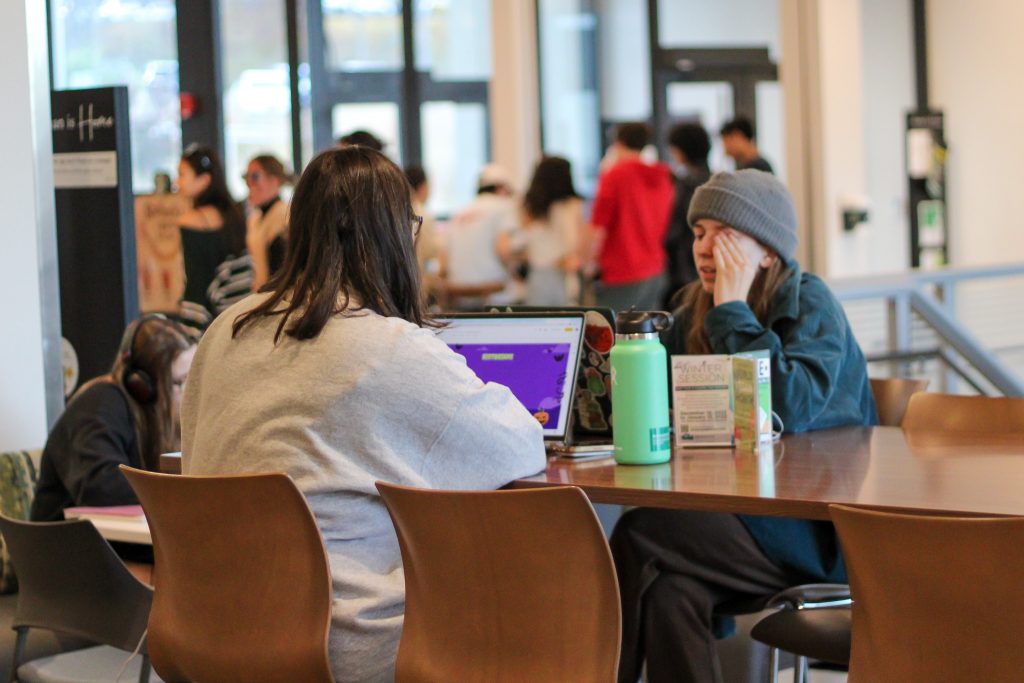The Stop Hunger food drive is back with a goal of donating 20,000 meals to people in need.
Between Oct. 24 and Oct. 31, Binghamton University Dining Services (BUDS) partnered with the BU Food Pantry and the Broome County Community Hunger Outreach Warehouse (CHOW) for their biannual initiative. Locations on campus accepting monetary donations include every resident dining hall, the Marketplace, Jazzman’s Cafe, Einstein Bros. Bagels, the Hinman C-Store, Starbucks and Garbanzo Mediterranean Fresh. Proceeds from the drive go toward providing a variety of food items to people in need, according to CHOW.
Lori Benson, the marketing director for BUDS, said the drive has taken place for many years and contributes to completing larger goals in the area.
“BUDS wants to help anyone on campus and in the local community with food insecurity by providing meals through the Stop Hunger drive,” Benson wrote in an email. “The proceeds from the drive will be split between the on-campus food pantry and CHOW. The past few Stop Hunger drives have provided between 13,000 to 20,000 meals.”
CHOW is a network of food pantries run by the Broome County Council of Churches, with the goal of making emergency food available to people requiring short-term assistance. According to its website, CHOW recovers 2.1 million pounds of food each year and partners with over 100 local pantries and meal sites.
In an editorial by BUDS, Les Aylsworth, director of CHOW, described the cooperation between the two organizations.
“Sodexo has been a great partner with CHOW, supporting our efforts in the community,” Aylsworth said. “The dining halls donate leftover food so that we can send it to meal sites.”
An organization students on campus may be more familiar with is the Food Pantry, located on the upper level of the College-in-the-Woods dining center. It has operated for years, helping the campus community access healthy food for free. According to the pantry website, it exists as a judgment-free place for students facing hard times and emergency situations.
Derek Tepe, the graduate assistant for Food Pantry Operation and a second-year graduate student pursuing a master’s degree in sustainable communities, discussed the need for the pantry and how the Stop Hunger Drive will impact its ability to operate.
“[For each dollar donated], 50 cents goes to CHOW and 50 comes back to the Pantry,” Tepe said. “[It] goes into this account to order food and have it be part of our inventory. That half of the donation is great because it gives us total control over what we want to order. The 50 cents going to CHOW benefits us almost directly as well, because we order food from CHOW.”
In recent years, food insecurity has become a larger issue impacting student success and overall health, according to the Pantry webpage. Tepe described noticing a spike in orders in recent weeks.
Hannah Gross, a sophomore majoring in integrative neuroscience, described her experiences ordering food through the Food Pantry.
“I ordered from the Food Pantry last year,” Gross said. ”It was really useful because I lived in [College-in-the-Woods] so it was easy to get there, and the food was really healthy.”
Stephanie Lai, an intern at the Food Pantry and a junior majoring in biology, shared her thoughts about the accessibility of food and the need for initiatives like the Stop Hunger drive.
“Not everyone has the same opportunity for food [access],” Lai said. “Food is such an important thing we need every day. Instead of just telling people we need to help others in the community, it’s important to follow through.”



